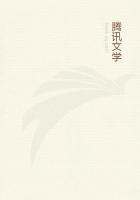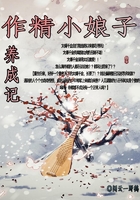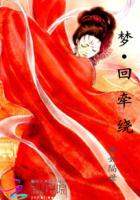`I will not disguise from you, sir--though perhaps I ought--that I have undergone great pain of mind, and have been nearly broken-hearted since I saw you last. I do not love this gentleman. The difference between our ages, tastes, and habits, forbids it. This he knows, and knowing, still offers me his hand. By accepting it, and by that step alone, I can release my father who is dying in this place; prolong his life, perhaps, for many years; restore him to comfort--I may almost call it affluence--and relieve a generous man from the burden of assisting one, by whom, I grieve to say, his noble heart is little understood. Do not think so poorly of me as to believe that I feign a love I do not feel. Do not report so ill of me, for that I could not bear. If I cannot, in reason or in nature, love the man who pays this price for my poor hand, I can discharge the duties of a wife: I can be all he seeks in me, and will. He is content to take me as I am. I have passed my word, and should rejoice, not weep, that it is so. I do. The interest you take in one so friendless and forlorn as I, the delicacy with which you have discharged your trust, the faith you have kept with me, have my warmest thanks: and, while I make this last feeble acknowledgment, move me to tears, as you see. But I do not repent, nor am I unhappy. I am happy in the prospect of all I can achieve so easily.
I shall be more so when I look back upon it, and all is done, I know.'
`Your tears fall faster as you talk of happiness,' said Nicholas, `and you shun the contemplation of that dark future which must be laden with so much misery to you. Defer this marriage for a week--for but one week!'
`He was talking, when you came upon us just now, with such smiles as I remember to have seen of old, and have not seen for many and many a day, of the ******* that was to come tomorrow,' said Madeline, with momentary firmness, `of the welcome change, the fresh air: all the new scenes and objects that would bring fresh life to his exhausted frame. His eye grew bright, and his face lightened at the thought. I will not defer it for an hour.'
`These are but tricks and wiles to urge you on,' cried Nicholas.
`I'll hear no more,' said Madeline, hurriedly; `I have heard too much--more than I should--already. What I have said to you, sir, I have said as to that dear friend to whom I trust in you honourably to repeat it. Some time hence, when I am more composed and reconciled to my new mode of life, if I should live so long, I will write to him. Meantime, all holy angels shower blessings on his head, and prosper and preserve him.'
She was hurrying past Nicholas, when he threw himself before her, and implored her to think, but once again, upon the fate to which she was precipitately hastening.
`There is no retreat,' said Nicholas, in an agony of supplication; `no withdrawing! All regret will be unavailing, and deep and bitter it must be. What can I say, that will induce you to pause at this last moment?
What can I do to save you?'
`Nothing,' she incoherently replied. `This is the hardest trial I have had. Have mercy on me, sir, I beseech, and do not pierce my heart with such appeals as these. I--I hear him calling. I--I--must not, will not, remain here for another instant.'
`If this were a plot,' said Nicholas, with the same violent rapidity with which she spoke, `a plot, not yet laid bare by me, but which, with time, I might unravel; if you were (not knowing it) entitled to fortune of your own, which, being recovered, would do all that this marriage can accomplish, would you not retract?'
`No, no, no!--it is impossible; it is a child's tale. Time would bring his death. He is calling again!'
`It may be the last time we shall ever meet on earth,' said Nicholas, `it may be better for me that we should never meet more.'
`For both--for both,' replied Madeline, not heeding what she said. `The time will come when to recall the memory of this one interview might drive me mad. Be sure to tell them, that you left me calm and happy. And God be with you, sir, and my grateful heart and blessing!'
She was gone. Nicholas, staggering from the house, thought of the hurried scene which had just closed upon him, as if it were the phantom of some wild, unquiet dream. The day wore on; at night, having been enabled in some measure to collect his thoughts, he issued forth again.
That night, being the last of Arthur Gride's bachelorship, found him in tiptop spirits and great glee. The bottle-green suit had been brushed, ready for the morrow. Peg Sliderskew had rendered the accounts of her past housekeeping; the eighteen-pence had been rigidly accounted for (she was never trusted with a larger sum at once, and the accounts were not usually balanced more than twice a day); every preparation had been made for the coming festival; and Arthur might have sat down and contemplated his approaching happiness, but that he preferred sitting down and contemplating the entries in a dirty old vellum-book with rusty clasps.
`Well-a-day!' he chuckled, as sinking on his knees before a strong chest screwed down to the floor, he thrust in his arm nearly up to the shoulder, and slowly drew forth this greasy volume. `Well-a-day now, this is all my library, but it's one of the most entertaining books that were ever written! It's a delightful book, and all true and real--that's the best of it--true as the Bank of England, and real as its gold and silver. Written by Arthur Gride--he, he, he! None of your storybook writers will ever make as good a book as this, I warrant me. It's composed for private circulation--for my own particular reading, and nobody else's. He, he, he!'
Muttering this soliloquy, Arthur carried his precious volume to the table, and, adjusting it upon a dusty desk, put on his spectacles, and began to pore among the leaves.














